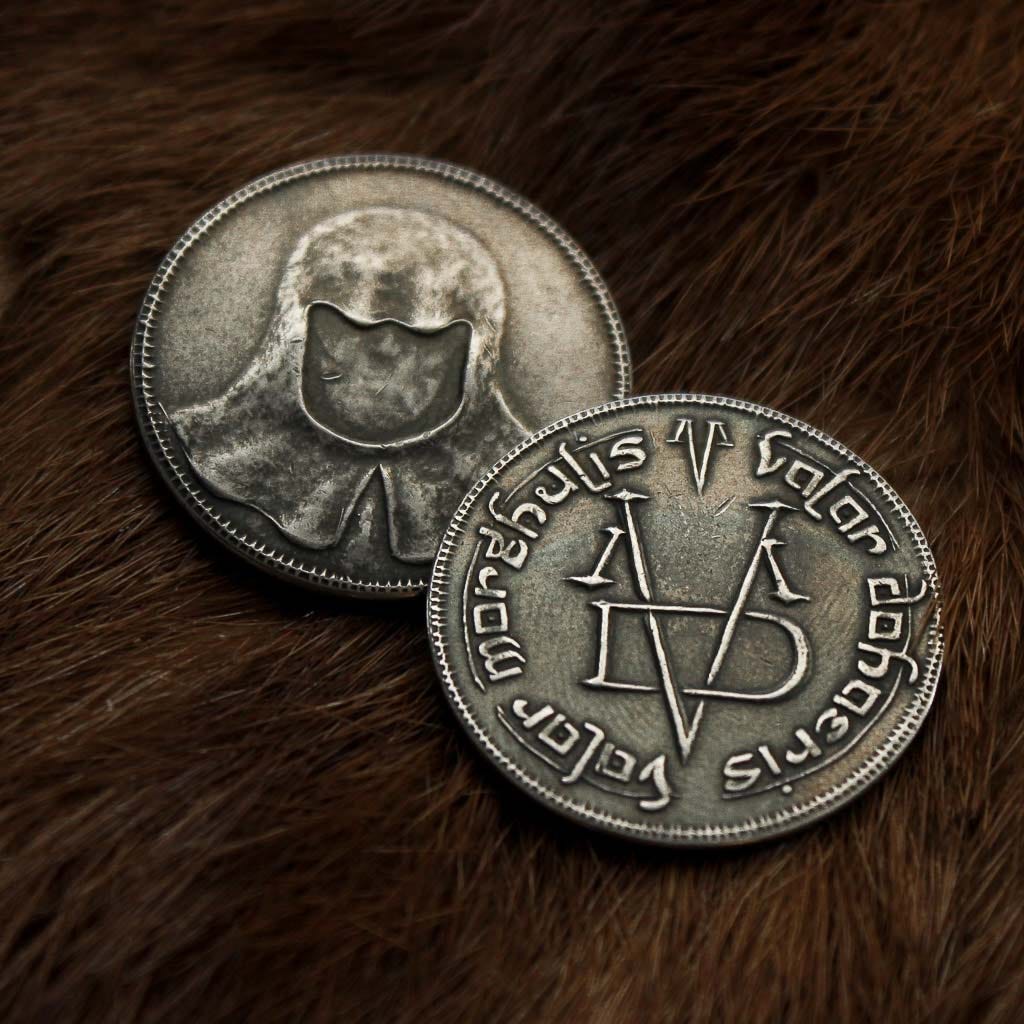CARROLLTON, Texas - Cradle of Civilization, (Feb 26, 2024) - If you are curious about Stoic Philosophy and want to see what it might look like in practice, I recommend you start with the movie, “Pollyanna.”
Pollyanna? “How so?” you may ask. After all it’s a Disney movie based on a book about some child that, well, is a “Pollyanna.”
Now, it’s generally not a compliment to call someone a Pollyanna. Witness this definition ripped from the internets:
Pol·ly·an·na
[ˌpälēˈanə]
NOUN
an excessively cheerful or optimistic person:
"what I am saying makes me sound like some aging Pollyanna who just wants to pretend that all is sweetness and light"
But, is Pollyanna a “Pollyanna”?
At the beginning of the movie there are people that think that. Spoiler alert - plot points are revealed from here on out.
At the start of the movie, Pollyanna, who has been orphaned, is going to live with her aunt Polly. Polly and her sister have been estranged ever since Pollyanna’s mother chose to marry a poor minister instead of a rich man the family had endeavored to pair her with. (Pollyanna had been named after two of her aunts, Polly, and Anna.)
Aunt Polly takes in Pollyanna from both a sense of duty, and a sense of making sure the townspeople see her as a righteous and upstanding example of virtue. You know, what with the sacrifice of taking in her sister’s kid and all.
Aunt Polly’s maid, Nancy goes to pick up Pollyanna from the train station. Pollyanna is jubilant to meet Nancy, which surprises her greatly until she realizes that Pollyanna believes her to be her aunt Polly. When Pollyanna learns of her misunderstanding, she is at first disappointed, and you can see her thinking through the disappointment and finally saying, (paraphrased) “I’m glad of that. Now I still can look forward to seeing Aunt Polly, and I have met you as well!”
Maid Nancy doesn’t know what to think of this, and finds it a bit strange. This type of thing keeps happening, and we finally learn, after one too many exclamations of “I’m glad of that,” of how her father taught Pollyanna “the glad game.”
Her father being a missionary was in South Africa with his family, and dependent on charitable donations. They request something for Pollyanna, I believe a doll, and when they get the barrel, for apparently things were shipped in barrels, they find crutches and not a doll. Pollyanna is disappointed, but her father suggests they play the glad game and find a reason to be glad. They finally agree that they are glad they don’t need the crutches.
Banal? Maybe. The thing is throughout the movie Pollyanna doesn’t just immediately decide she’s glad about everything. She deliberately considers her situation and thinks through the possible responses, and chooses to find something to be glad about rather than sad. It is, as I said, a deliberate choice following a true effort to assess the events or circumstances.
And therein lies the connection to Stoic philosophy.
Some things are in our control and others not. Things in our control are opinion, pursuit, desire, aversion, and, in a word, whatever are our own actions. Things not in our control are body, property, reputation, command, and, in one word, whatever are not our own actions. - Epictetus
Pollyanna’s father understood this, and taught the glad game to Pollyanna as a tool to exercise her will over the things she could control.
Throughout the movie, we see Pollyanna get angry, and make decisions that appear decidedly un-pollyannaish. For example, she befriends an old woman, Mrs. Snow, who is obsessed with her impending death. She spends her life lying in bed and planning her funeral.
This is an example of a misapplication of the Stoic principle of memento mori. Memento mori is Latin and is usually translated as “Remember you must die.” Here is the term defined with some application to boot:
“You could leave life right now. Let that determine what you do and say and think.” - Marcus Aurelius
The Pollyanna application, “My father used to say, ‘a person should think about living.’” She then explains the glad game, and the undertaker, sensing a potential delay in making a sale, tries to chase off Pollyanna. She gets angry and shouts, “I just thought she could play the game. You could be glad you don’t need this horrid old coffin. You could help others, by making a patchwork quilt for the orphans, if you wanted. You ought to forget about dying, and be glad you’re living.”
Now, you may be thinking, “But she said don’t think about death.” That’s just the thing. “Remember you must die,” is meaningless if there is not a reason for remembering it. “Remember you must die” is not intended to be merely a morbid focus on death to the exclusion of anything else. No, quite the opposite.
If you are going to remember something, let it be for a reason! Remember you must die, therefore go out and live! And how shall we live?
I am reminded of the Iron Coin of the Faceless Man that Jaqen H'ghar gave Arya Stark.
“All men must die, all men must serve.” Pollyanna says something similar to Mrs. Snow. “You could help others, by making a patchwork quilt for the orphans, if you wanted. You ought to forget about dying, and be glad you’re living.”
Couple of things:
1. Pollyanna knows that Mrs. Snow is not dying. She’s just obsessed with it for some reason.
2. Pollyanna makes another Stoic decision. After her outburst, she says, “Oh, I don’t care what you do.” But then, she stops and thinks for a bit, and arrives at a conclusion. “I’m not gonna come and see you anymore.”
Is this a childish and empty retort, the response of someone with hurt feelings striking back? Maybe. But, I don’t think so. There is no meanness in her when she says she won’t be back. It’s a decision and a statement.
There is in Stoic thought the idea that we should change what we can, and endure what we cannot. You may be reminded of the Serenity Prayer which asks God to grant the serenity to accept the things you cannot change, and the courage to change the things you can. What can we change? In Stoic thought, only ourselves; to put a fine point on it, only our reactions to the things that happen.
Pollyanna, frustrated with Mrs. Snow, decides to leave the situation. She cannot make Mrs. Snow choose life and living and service. And so she makes the difficult yet wise decision to distance herself from a toxic influence. The acting by Haley Mills is pretty good here. She was angry, she stops, considers, and decides to let go of a bad relationship. Harsh? Maybe.
But Mrs. Snow, saddened by Pollyanna’s departure, takes up the patchwork that Pollyanna had brought, and decides to make a quilt. She decides to change herself. Influenced by Pollyanna for sure, but not made to do so by Pollyanna.
Near the end of the movie, Pollyanna endures a tragedy, and loses herself. Someone suggests the Glad Game, and she says she is sick of the game. This is a realistic response. And yet, she eventually recognizes that things are what they are, and finds herself again.
Some critics of the movie refer to Pollyanna and the Glad Game as Toxic Positivity.
But I say again, that Pollyanna is not a “Pollyanna.” She does not engage in toxic positivity, she is displaying a proper stoic response to the realities and vagaries of life.
And I think we could all benefit from the Glad Game in our own lives.
My Rating: Recommended.



